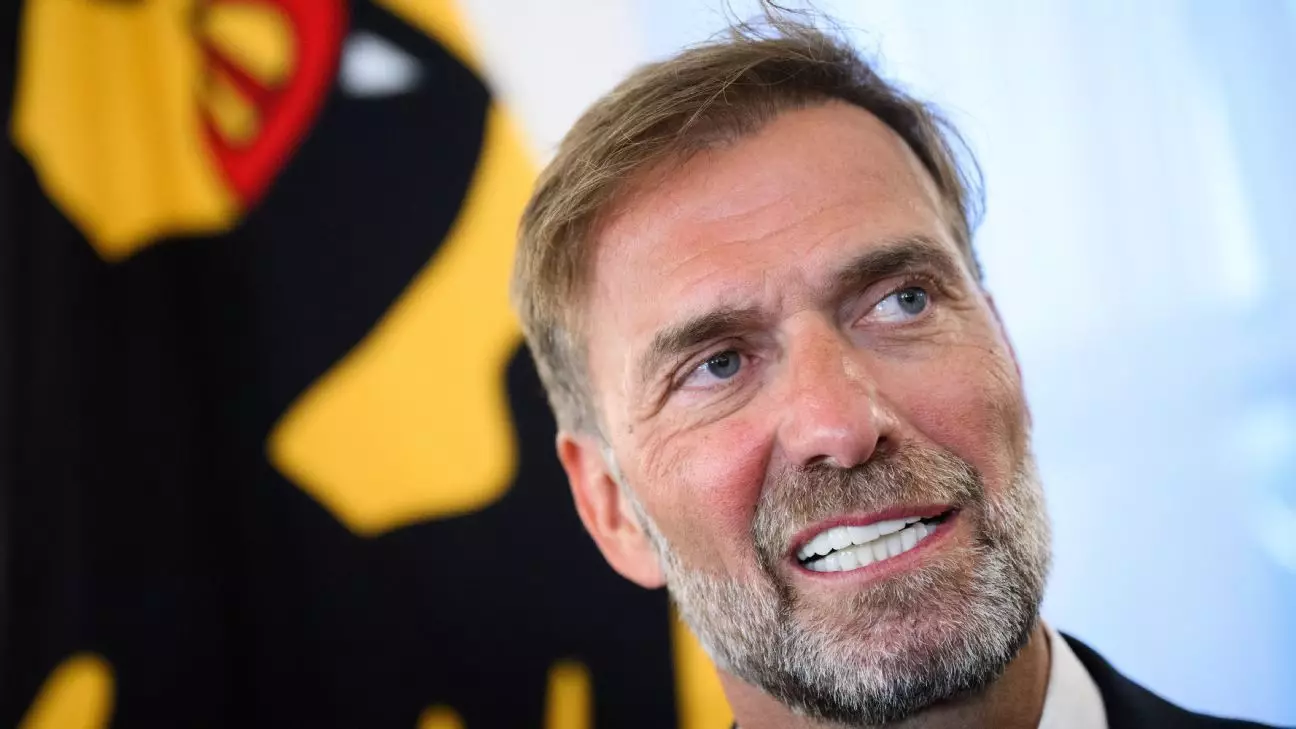Jürgen Klopp, renowned for his charismatic coaching style and transformative impact on teams like Borussia Dortmund and Liverpool, has recently made headlines with his unexpected decision to take on the role of head of global football at Red Bull’s group of clubs. Such a move, coming immediately after his departure from Liverpool, has stirred discontent among fans of his former teams, particularly in Germany where the involvement of a corporate entity in football is often viewed with suspicion. Klopp’s comments reflect a delicate balancing act he must perform between pursuing his career ambitions and managing the sentiments of devoted supporters who feel betrayed by this alliance.
Many fans are disheartened by Klopp’s choice, interpreting it as a betrayal given his deep-rooted connections with clubs like Mainz and Dortmund. The resentment largely stems from the belief that Red Bull’s aggressive marketing and commercial strategies threaten the traditional values of football. Borussia Dortmund fans, for example, have been vocal about their displeasure, while Mainz supporters have openly questioned Klopp’s judgment through banners at matches. In this context, Klopp’s assertion that he “didn’t want to step on anybody’s toes” illustrates his awareness of these emotional ties and the broader implications of his new role in the footballing world.
In recent years, the landscape of football has shifted dramatically with the infusion of corporate money into the sport. Clubs like RB Leipzig, although successful on the pitch, have faced skepticism and backlash from fans who view corporate ownership as contrary to the spirit of the game. Klopp’s decision to join such an organization is emblematic of the ongoing tension between commercial interests and traditional fan values. He has acknowledged the backlash, indicating that there is no perfect solution that would satisfy every stakeholder in this situation. This leads to the larger question: has football become too commercialized, and what role do coaches play in this evolving dynamic?
Klopp’s Evolving Perspective
In his recent interview, Klopp seemed to shift his perspective regarding Red Bull’s involvement in football. He claims he never viewed their role ominously and believes they have rejuvenated football in the eastern parts of Germany. This reappraisal could be seen as pragmatic, as it allows him to justify his new position. However, it can also be interpreted as an attempt to mitigate the backlash he faces from fans who see corporate involvement as a dilution of football’s heritage. His comments suggest that he might be trying to position himself as an ally of the clubs under the Red Bull umbrella, promoting development and collaboration rather than merely toeing the corporate line.
As Klopp steps into this new role, he envisions himself more as an adviser rather than a traditional coach, a notion that might provide some comfort to fans concerned about his influence over the teams. By working closely with coaches and supporting the strategic direction of the clubs, he hopes to foster an environment that values talent development while still respecting the game’s integrity. Klopp’s approach could potentially ease the tensions by ensuring that football remains about the players and the sport itself, above all else.
Ultimately, Klopp’s appointment at Red Bull serves as a significant moment not just for him, but for football at large. His legacy as a manager is built on deeply understanding the game’s core values, but this new chapter poses questions about his alignment with corporate interests. The reaction from fans underscores a vital conversation about the future of football, the role of coaches, and how deep-rooted traditions can coexist with modern-day ownership models. Whatever the outcome, Klopp’s journey will be closely scrutinized by both supporters and critics as he navigates this new terrain in the footballing world.


Leave a Reply